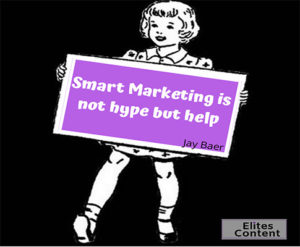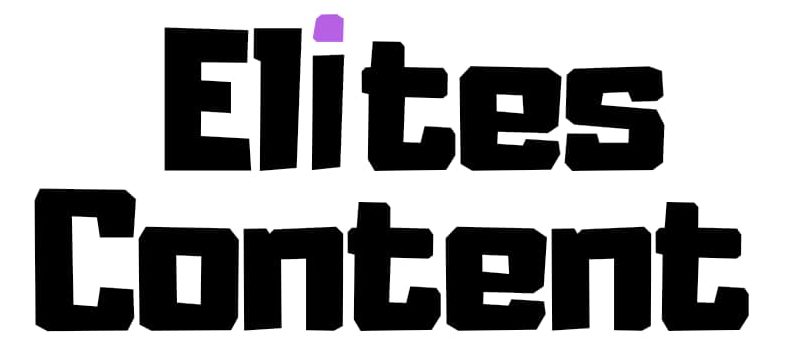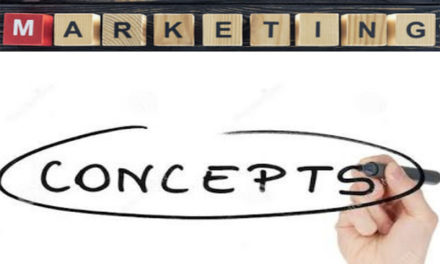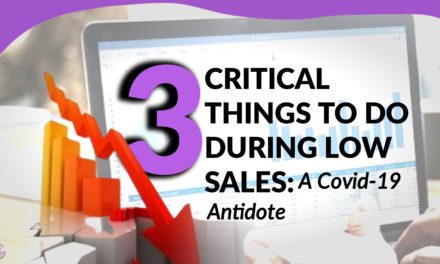Does value-based marketing really have anything to do with annoyed customers?
This question could be simple to answer. But that is if you have better knowledge of what value-based marketing (VBM) entails. So if you don’t, then it remains a puzzle.
Don’t be tensed, start this article with this true-life story that follows immediately after this paragraph. Then, you’ll get your mindset to grow with value-based marketing (VBN) instead of accumulating angry customers.
Here, the story goes:
I overheard a lady complaining to her friend about a product she bought a few days ago. Let me quote her words:
“The first time I saw the pack of this product I imagined it to be of high quality. So, I expected a good performance. But I felt disappointed after going to a shop to get one. As a matter of fact, I can never use it now even if you give me as a free gift.
This was a true expression of dissatisfaction by an angry customer. The story simply tells that majorly of consumers who make purchases do it with expectations.
The earlier you understand it, the quicker you begin to increase customer loyalty as against deflecting customers.
This article presents you a clear definition of Value-Based Marketing (VBM) and how it applies to customers and business survival. You will find it useful because I know you will not want to experience the wrath of a sad consumer or customer.
The expression of the angry customer depicts how most businesses end up. They deceive their customers indirectly by projecting what they are not just to make sales.
So then I ask, what shall it profit a businessman to gain the whole profit at a spot; and make the whole customers cry as well?
If you have been on the buying side, you will notice that some business organizations strive to make sales by all means. But I bet you, they have no relevant answers to some striking questions as such :
Critical Questions Most businesses never bordered to Answer
- What happens after sales?
- What happens after receiving a consumer’s cash via deceit?
- How does the consumer perceive your brand after consumption?
- what is the long-term effect of deception in business?
You see? selling without value consciousness is more like exchanging trust for money, and that’s not a good practice.
One thing most businesses don’t know is that- You can only cheat or fool a customer once and the customer will become wiser forever.
What Are The Implications of A Customer Being Wise?
When you cause regret to your customer, you have also taught him/her a lesson. The customer will learn and become wiser, then you will see repercussions.
The implications of not being fair to a customer are so many. Here are a few of them:
Customer Deflection
This occurs when a customer stops patronizing a particular firm and then starts patronizing the primary competitors of the firm. Once a customer becomes wiser, he or she has a tendency of running very far from your brand. Customer deflection is a terrible experience for any business that wishes to survive in this hyper-competitive era.
Negative Word of Mouth
An angry customer will not hesitate to react especially by spreading the bad news to her peers and relatives.
Studies in the field of marketing reveal that customers who are dissatisfied spread negative words more than the way satisfied customers spread positive words. For instance, a study conducted by the American Express Survey in May 2011 revealed that a satisfied American will tell at least 8 person’s about the experience while a dissatisfied American will tell at least 16 persons about his bad experience. This is also called the “Multiplier effect.”
You see the irony of life? When you do well, you get hundreds of praises but when you do badly, you get thousands of curses.
Take A Legal Action
Taking a legal action occurs when customers report the ugly situations to the government or regulatory agencies. This could lead to taking your business to court or payment of charges that could lead to a greater loss. The loss if not financially, it could be a loss of reputation which is also harmful to business survival.
Nevertheless, given value to customers has no disadvantage instead; it opens the door for brand loyalist and advocates. I like the advice given by my friend and mentor, Seth Godin. He made the whole point clear with his wise words.
Don’t find customers for your products, find products for your customers. ― Seth Godin.
His statement simply means that you need to focus more on products that have value and not just on selling. So, if you focus on providing what is valuable to the customers, they will surely come back for more. Don’t forget, it’s vice versa.
Before telling you what value-based marketing is all about, you need to know what value is.
What is a value?
Value as a term has different meanings depending on the context you are looking at it. In an ethical context, value means principles, standards held in esteem by a particular set of people or society.
In a business or marketing context, value means an offer or a product that is beneficial to its users. A value in a marketing context implies the solution to a customer’s problem. It also means something of great worth and importance.
So What Is Value-Based Marketing (VBM) All About?
Value-Based Marketing (VBM) is simply a marketing practice that involves putting customers’ benefits first before firms’ sales and immediate profit.
It involves placing the future first than to sell in a hurry. it puts long-term relationship into consideration. In other words, it is long-term oriented and not short-term oriented. The practice of VBM or Value-Based Marketing is all about the exchange of value. This is based on the fact that marketers provide value (product/benefits) in exchange for consumers’ value (money /assets).
You see, VBM is not just a tactic, it’s a value-chain-process. Both the buyer and the seller are involved. So any default obstructs the process.
No doubt, marketing itself is all about creating value. This is clearly revealed in the expressions of the marketing guru, Philip Kotler. He stated that:
Marketing is not the art of finding clever ways to dispose of what you got but creating genuine customer value is Marketing- Philip Kotler.
His expression argues that the cleverness of business organization is not measured by their ability to trick customers. But it is measured in the creative mind and ability to provide lasting valuables.
Lots of authorities in the marketing world have evangelized value-based marketing and it reflects in their definitions of marketing.
Who else has evangelized Value-Based Marketing (VBM)?
Jay Baer nailed it in his Youtility book captioned “why smart marketing is about help, not hype.”
The Youtility book is set to uncover a new marketing model for the new age (an era of information overload).
In his words, “today’s consumers are staring at an invitation avalanche, with every company asking for likes, follows, clicks, and attention; instead of marketing that’s needed by companies, Youtility is marketing that’s wanted by customers.”

Among the key points of the book are:
- Instead of trying to be amazing, you focused on being useful.
- Instead of trying to promote, you inform.
- Creation of long-term trust and kinship between your company and your customers.
Jay also mentioned that the difference between selling and helping is just the two letters. The difference is what makes the modern business approach which the book explains clearly.
How did Vargo and Lusch Evangelized Value Based Marketing?
To buttress the significance of VBM or value-based marketing, Vargo & Lusch stated that value of a product is not traceable to the product itself but on the experience, it brings to the users (customers).
They believed that companies that adhere to the VBM ideology will focus on customers’ benefits and experiences more than any other thing.
See how they made their points:
The value of a washing machine, wood pallet, cosmetic or computer can never be in its production, distribution or marketing, but only in its use. That is if no one uses a computer or appliances and cosmetics; there are no benefits, no value created-Vargo & Lusch
This simply means that the experience a product brings is what matters in a VBM ideology. If your business does not provide value, then you aren’t into any business at all.
What are other ideologies behind value-based marketing?
There are lots of ideologies that agrees with VBM. Among them is content marketing. In fact, there is no content no content marketing with VBM mentality.
Related: What is Content Marketing? 5 Benefits that can Help Your Business Grow
VBM argues that every product must possess and fulfill the first promise, and that is nothing else but value.
Consumers are humans and they are known for their rationality. That’s why they are first driven by the question of – “what is in for me?”
Any product that cannot provide an answer to their question (what is in for me?) will not last long in their minds. When consumers want to make a purchase they are in need. They only look out for value, not hype.
Now bring your mind back to the story that began this article. You will notice that the angry consumer wanted value, not hype.
That’s why she vowed not to get the hype again, even when giving for free. A VBM or value-based marketing advocates for firms to provide value which is similar to the thoughts in content marketing.
Value is what the consumers want. Once they can’t find it, they feel disappointed and most times feel cheated. In most cases, creating value could be expensive but I bet you, it’s worth it.
Let me give you these three powerful takeaways:
- Any organization can get patronized, but only a few remain in the minds of their consumers. That’s because creating value makes you valuable.
- Being valuable in the eyes of the consumers differentiates you from a mere producer and turns you to a solution provider. That’s what matters most.
- A firm can spend a lot on ensuring that its value is kept. The good news is that profit doubles when a business organization gains customers’ trust and loyalty.
There are lots of people that have created value and their net worth rose simultaneously. Mark Zuckerberg, CEO of Facebook is a good example. Today I wonder who have ever done anything on the internet and yet does not know or have not head about Mark Zuckerberg, the Facebook boss.
How Did Value-Based Marketing Relate With Mark Zuckerberg?
Mark started Facebook in 2004 with value creation in his mind.

Mark With A VMB Mentality
The core idea still remains that he wants a platform that will turn the world into a small community. Where anyone can exchange greetings, share ideas and other important information with little or no stress. Isn’t that a VBM mentality?
With a VBM mentality, the company in their earnings statement disclosed how they spent $1.06 billion on research and development in the first quarter of 2015. That’s almost 30% of the total revenue generated during the quarter ($3.54 billion).
The company also spent huge resources inventing in software development and Artificial Intelligence (AI). They spent billions to acquire WhatsApp and Instagram as social media platforms that will ensure achievement of their mission and to ensure continuous delivery of value to its customers or subscribers.
Today, the success of Facebook rings like a world’s ringing tune. Facebook is crowned as the world largest and most popular social-networking company with over 2 billion monthly active users.
What about Mark Zuckerberg? he has remained in the top list of the world’s richest men. That’s what VBM ideology can create.
The truth remains that investing resources to provide value may be very expensive but the result is worth it.
Final Note
Value-based marketing or VBM is not a new concept in the business world but lots of people miss it, while some never know the concept exists. But lucky you are here.
You need to understand that VBM is the tenet of all marketing activities. Lots of industry leaders including Kotler have emphasized the need for a focus on value creation.
The core idea is- to remain relevant in the eyes of consumers, you must think value, value, and value.
Now, you know it, ensure you put VBM in practice. Then, your business will not be far from the next celebrated.
Let me get your thoughts in the comment box if you still have some time.

Jackson is an obsessed content marketing specialist. A brand storyteller, not a teller of stories. He is passionate about helping online businesses grow with compelling digital marketing strategies. Follow him on Twitter, LinkedIn, and Instagram.







Thanks a lot for giving everyone an extremely terrific opportunity to read articles and blog posts from this blog. It’s usually so brilliant and as well , full of amusement for me and my office co-workers to search your blog particularly 3 times in one week to study the newest tips you will have. And of course, I’m just at all times motivated with the powerful opinions you serve. Certain two ideas on this page are ultimately the most impressive we’ve had.
Wow Mikel, Am glad you found the article useful. Thanks for showing appreciation